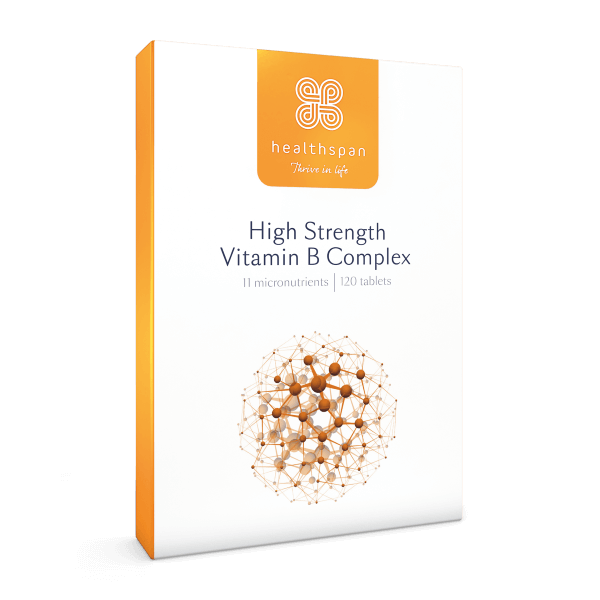There are many health benefits that come with improving your fitness, but before you hit the treadmill, it’s important to know what your body needs to safely and effectively achieve your fitness goals. Here are our top tips to help you on your way.
Stay hydrated
Did you know? Your body can lose up to one litre of water per hour of physical activity. That's an awful lot! But keeping your body sufficiently hydrated is essential when exercising.
"Hydration is important as we lose water and salts (electrolytes) during exercise," says nutritional therapist Sarah Barber. "Even mild dehydration can cause a drop in performance levels. A dry mouth is the last sign of hydration so it is recommended we drink 1.5 litres of fluid on no exercise days and increase that by around 500ml on days when you are exercising."
Hydrating up to two hours before exercise will give your body time to properly ingest it, without leaving you feeling heavy and bloated, while drinking at regular intervals during (and post) workout will help to keep levels topped up. Don't forget, you still sweat doing exercises such as swimming, so always remember to take a drinks bottle with you!
Fill up on healthy carbs
"Carbohydrates are important as they reduce blood sugar fluctuations as well as sustain energy levels while exercising," says Sarah.
Glycogen is a source of glucose energy used throughout the body during exercise. It's stored in the muscles and liver and it comes from carbohydrates. Just remember that, despite carbohydrates not being the devilish food group that modern day society has made them out to be, consuming too many can cause the body to convert carbs that are unused into body fat.
There are two types of carbohydrate: simple carbs and complex carbs.
Simple carbohydrates provide quick bursts of energy, while complex carbohydrates are processed slower by the body, and release energy over a longer period of time.
Simple carbohydrates can be found in foods such as:
- Sweets
- Soft drinks
- White flour
- Fruit
Complex carbohydrates can be found in starchy, fibre-rich foods such as:
- Potatoes
- Vegetables
- Wholegrains
- Rice
- Meat
Protein is ESSENTIAL
"There is an increased need for protein when exercising," says Sarah. "Protein builds and repairs muscles and helps maintain energy and blood sugar levels." In fact, eating carbohydrates alongside protein can help your body take in the correct nutrients more effectively.
Don't forget vitamins and minerals
The key to obtaining the required levels of vitamins and minerals is to eat a wide variety of nutrient-dense foods.
This is important in any healthy diet but even more so when training and building fitness levels as some vitamins can even help the breakdown of food into energy. Minerals are necessary for strong teeth and bones, controlling body fluid and, like vitamins, turning food into energy.
Our top six essential vitamins and minerals are:
Riboflavin
Also known as vitamin B2, and vitamin B12, Riboflavin helps to breakdown carbohydrates, protein and fat and can be found in foods such as milk, eggs, spinach and white meat. These vitamins convert your food intake into energy for the body and are also important for muscle growth.
Vitamin C
Citrus fruits, green vegetables and tomatoes all contain high levels of vitamin C, a powerful antioxidant that can protect the body against infection. It also helps the body to absorb iron and metabolise carbs for fuel. A study conducted by the American Journal of Clinical Nutrition found evidence vitamin C supplementation could help prevent to the post-race upper respiratory tract (URT) infections that occur in competitive runners as well as help to reduce the severity of such infections in those who are inactive.
Vitamin D
This vitamin is essential for helping the body absorb calcium, which in turn helps muscle contractions. Dairy products, oily fish and sunflower seeds all contain high levels of vitamin D.
Calcium
Calcium is recommended to maintain a healthy diet. Found in dairy products, it is integral to strong bones and teeth as well as muscle contractions and energy metabolism. Too little could result in the release of the hormone, calcitriol, which makes your body store unnecessary fat.
Iron
Iron helps maintain high energy levels and keeps the immune system strong. It also forms part of haemoglobin, the pigment that transports oxygen from the lungs to the muscles. Iron-rich foods include sardines, red meat and bran.
Omega 3
Fatty acids such as omega 3, which improve blood flow, are very important to include in your diet because your body can't physically produce them. Find these essential acids in supplements or foods such as salmon, walnuts, soy beans and canola oil.

High Strength Vitamin B Complex
All the essential B vitamins to support your brain, heart and energy levels
- High levels of all eight B vitamins
- Supports immunity and reduces tiredness and fatigue
- Heart, brain and nervous system support for just 8p a day






